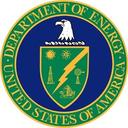Willis Lease Finance Corp. has announced its subsidiary, Willis Sustainable Fuels (UK) Limited, has entered into a master services agreement (MSA) with McDermott for early EPC related services for its SAF initiative.
Invizyne Technologies Inc., a leading designer of cell-free, enzyme-based biomanufacturing systems, has announced it was awarded a $2 million project to enable enzyme production for cell-free biomanufacturing of SAF.
Simply Blue Group has collaborated with the Assembly of Nova Scotia Mi’kmaw Chiefs to establish a path forward focused on sustainable development of the company’s SAF project under development in Goldboro, Nova Scotia.
HSBC Hong Kong, Cathay Pacific and EcoCeres are launching a significant initiative to support the use of SAF in Hong Kong. HSBC Hong Kong is purchasing 3,400 metric tons of SAF produced by EcoCeres, which will be used in Cathay Pacific flights.
Nearly 2.16 billion RINs were generated under the RFS in October, up from 2.13 billion generated during the same month of last year. Total RIN generation for the first 10 months of 2024 reached 20.85 billion.
Clean Fuels Alliance America members have elected new governing board members. The new leadership reflects the interests of both large and small companies, biodiesel and renewable diesel producers, as well as soybean growers and renderers.
On Nov. 20, Senator Jerry Moran, R-Kan., visited a meeting of the Sustainable Aviation Fuel (SAF) Coalition, where he discussed the need for greater legislative efforts to support the production and deployment of SAF in the 119th Congress.
The DOE, USDA and FAA on Nov. 20 released a new implementation framework that identifies key opportunities to increase biofuel production to deliver economic opportunities and healthier communities to rural and agricultural areas across America.
Senate Ag Committee releases draft Farm Bill that includes significant updates to USDA’s loan guarantee program
Sen. Debbie Stabenow, D-Mich., chairwoman on the Senate Agriculture, Nutrition and Forestry Committee, on Nov. 18 introduced the Rural Prosperity and Food Act, which is the Senate’s version of the upcoming Farm Bill.
Rep. Randy Feenstra, R-Iowa, and five of his colleagues on the U.S. House Ways and Means Committee on Nov. 18 announced they are seeking additional information from relevant stakeholders on biofuel tax policy. Reponses must be submitted by Dec. 13.
White House releases interagency report to advance biotechnology and biomanufacturing for robust economic growth
The Biden-Harris administration released a new report, Building a Vibrant Domestic Biomanufacturing Ecosystem, to advance biotechnology and biomanufacturing as part of a broader national bioeconomy implementation plan.
Corteva Inc. has announced plans to form a joint venture with bp focused on feedstock production for SAF. The company plans to grow proprietary Corteva mustard seed, sunflower and canola feedstocks well-suited for SAF production.
Aemetis Inc. on Nov. 12 released Q3 financial results, reporting increased revenue for its California ethanol, India biodiesel and dairy RNG business segments. Development also continues on the company’s SAF and CCS projects.
Sora Fuel, a venture-backed startup that produces SAF using only water, air, and renewable energy, and Emerging Fuels Technology Inc., a leader in converting renewable feedstocks into SAF, have signed a technology cooperation agreement.
DOE announces $20.2 million in projects to advance development of mixed algae for biofuels and bioproducts
The U.S. Department of Energy on Nov. 14 announced $20.2 million in funding for 10 university and industry projects spanning seven states to advance mixed algae development for low-carbon biofuels and bioproducts.
A group of 36 biofuel, biogas, agriculture, energy and fuel retailer trade groups on Nov. 13 sent a letter to federal lawmakers urging Congress to extend several expiring tax credits during its Lame Duck session.
Alfa Laval has secured two contracts to supply cutting-edge HVO pre-treatment technology to Europe's largest biofuel facility. The facility will produce 500,000 metric tons of SAF and renewable diesel annually.
Topsoe has signed an agreement with Refinaria de Petróleo Riograndense SA to provide its HydroFlex and H2bridge technologies for SAF and renewable diesel production at Riograndense’s Rio Grande renewable fuels plant in Brazil.
The U.S. Energy Information Administration maintained its 2024 and 2025 forecasts for the production of biodiesel, renewable diesel and other biofuels, including SAF, in its latest Short-Term Energy Outlook, released Nov. 13.
The U.S. EPA on Nov. 12 delivered a proposed rule to the White House OMB pertaining to the RFS. The title of the proposal indicates the rule would waive a portion of the 2024 cellulosic RVO and offer an extension of the 2024 compliance deadline.
The U.S. Department of Energy on Nov. 13 announced the release of its latest Pathways to Commercial Liftoff report, which underscores the near-term potential for sustainable aviation fuel (SAF) to meaningfully decarbonize the aviation sector.
On Nov. 13, U.S. EPA Administrator Michael S. Regan announced the appointment of 18 new members and reappointment of 6 members to the Farm, Ranch, and Rural Communities Federal Advisory Committee.
Drax Group plc on Nov. 12 reported its pellet production business is performing well on increased production and improved margins. The company is also working to develop new market opportunities for pellets, including SAF feedstock.
President-elect Donald Trump on Nov. 11 announced he will nominate Lee Zeldin to serve as administrator of the U.S. EPA. Zeldin previously served as a member of Congress, where he cosponsored legislation to repeal and revise the RFS.
Neste and Air Canada have signed an agreement for the supply of 60,000 metric of neat Neste MY Sustainable Aviation Fuel. Neste will deliver the SAF, blended with conventional jet fuel, to the Vancouver marine terminal starting in December 2024.
Calumet Inc. on Nov. 8 released third quarter financial results and outlined plans for the development of Montana Renewables’ MaxSAF initiative, which will be supported by a U.S. Department of Energy loan guarantee.
CARB on Nov. 8 approved updates to its LCFS that aim to reduce the CI of the state’s transportation fuel by 30% by 2030. The updates also alter how a variety of biofuels, including biobased diesel and RNG, participate in the program.
Gevo Inc. released Q3 financial results on Nov. 7, discussing the impact of the conditional commitment for its DOE loan guarantee and confirming the company’s acquisition of Red Trail Energy remains on track to close in early 2025.
The USDA released its latest Crop Production report on Nov. 8, reporting reduced forecasts for 2024 soybean production and yields. Both production and yields, however, are up significantly when compared to last year.
The USDA maintained its forecast for 2024-’25 soybean oil use in biofuel production in its latest World Agricultural Supply and Demand Estimates report, released Nov. 8. The U.S. season-average price for soybean oil was revised up 1 cent per pound.
Advertisement






























